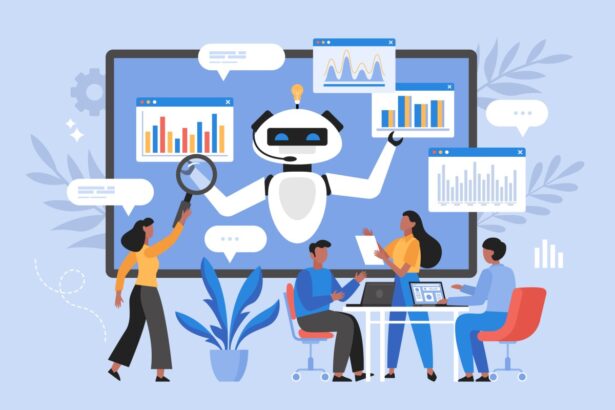Is AI ready to deliver its promise in the Retail Sector? The answer is a resounding yes!
Generative AI in Retail is reshaping the industry beyond simple product recommendations. It’s powering everything from AI-powered supply chain management to personalized customer experiences with AI, leading to greater efficiency and profitability.
Generative AI in retail market is expected to grow at a CAGR of 37% from 2025 to 2034, valuing its AI-driven dynamic pricing capabilities.
The AI in retail industry is undergoing a major shift, driven by evolving consumer behaviour and tech innovations. Legacy systems once operated in silos, causing inefficiencies in operations and insights. Now, with retail digital transformation, tools like Gen AI and ML enable real-time retail predictive analytics, streamlined processes, and improved compliance.
This blog explores top AI retail use cases and the many Generative AI benefits in retail that are driving smarter, data-driven decision-making across the retail sector.
The Influence of Generative AI in Retail
From early AI retail use cases like Amazon’s basic product suggestions, AI in the retail industry has rapidly evolved. Today, it’s reshaping how retailers engage customers, manage operations, and drive growth. Big data analytics act as the cornerstone to meet the growing demands of users globally, by encouraging retailers to make intelligent decisions and remain competitive in the market.
Generative AI in retail has emerged as a powerful driver of retail digital transformation, enabling hyper-personalized shopping experiences and real-time business insights. With capabilities like AI-powered supply chain management, AI-driven dynamic pricing, and retail predictive analytics, Gen AI enhances both customer satisfaction and operational efficiency.
As personalized customer experiences with AI become the norm, embracing Gen AI is no longer optional — it’s essential for staying competitive.
How Generative AI is Transforming the Retail Industry
Before the rise of Generative AI in Retail, processes like inventory management and demand forecasting relied heavily on manual analysis. The introduction of automation and online shopping marked a major shift in retail digital transformation, streamlining operations and enhancing customer convenience.
However, automation had its limits. With the emergence of AI in the retail industry, especially intelligent retail automation, retailers gained access to powerful tools like retail predictive analytics, AI-powered supply chain management, and AI-driven dynamic pricing. These innovations optimized warehousing, inventory, and pricing strategies while enabling personalized customer experiences with AI.
The COVID-19 pandemic further accelerated this shift. Retailers rapidly moved from physical stores to digital-first models, embracing flexible online shopping, digital payments, and faster checkouts. The evolving landscape, backed by Gen AI, continues to unlock new AI retail use cases and highlights the growing Generative AI benefits in retail.
This paradigm shift, powered by Generative AI in retail, has transformed every department across retail operations. From customer engagement to backend logistics, businesses are leveraging AI in the retail industry to address long-standing challenges and stay ahead in a competitive market. Below is a breakdown of key retail functions, their traditional challenges, and the measurable Generative AI benefits in retail operations.
Download the Gen AI Brochure to learn how Calsoft caters advanced solutions to diverse industry verticals such as manufacturing, data centers, storage, networking, telecommunications, retail, and more.
Gen AI-Powered Use Cases in Retail
| Department/Process | Challenges | Use of AI systems | Outcome |
| Inventory & Supply Chain Management | Overstocking or under-stocking of products | Analysis of historical sales data within minutes to predict demand patterns. Track and manage inventory automatically & route optimization |
|
| Warehousing & Storage | Inefficient warehouse management & identification of correct goods | AI-powered robots and Intelligent Automation provide for proper identification of goods and even rerouting when required |
|
| Pricing & Dynamic Offers
|
Adjusting prices as per market condition | AI algorithms, dynamic pricing is made possible in real-time responding to market conditions & thus, actively tailor product offerings and pricing strategies |
|
| Logistics Optimization
|
Delays and deliveries had riddled the retail market | Real-time tracking and monitoring of goods and vehicles
Identify delays and provide for route optimization |
Timely deliveries & customer satisfaction |
| Marketing & Advertising | Lack in business insight, badly designed campaigns & missed targets | Analysis of vast customer data in real-time, evaluation of sentiment analysis, and analysis of historical campaign performance |
|
| Customer Service & Personalization
|
Delays in responses and predicting demand | Chatbots and Virtual Assistants provide for accurate and precise information, are available 24×7, give a personalized interaction |
|
| Maintenance | Equipment failure
Delayed Production Schedules |
ML algorithms analyze equipment sensor data, enable proactive servicing, and minimize downtime |
|
Calsoft, with its deep domain expertise and established processes, provides targeted solutions that are both secure and smart to help Retailers digitally transform the way they do business. Explore AI-powered retail solutions here Retail Transformation through data-powered innovation.
Key Software Architecture for AI Implementation
Generative AI in retail relies on three core components: intelligence, contextual awareness, and always-online presence, benefiting both retailers and customers. However, a robust software architecture is essential for successful AI implementation. Let’s explore the key components that support AI in the retail industry.
1. Data Structures & Ingestion
Retailers must gather and structure customer interactions and transaction data from multiple touchpoints—online stores, apps, and in-store sensors—for effective retail predictive analytics and insights.
2. Real-Time Processing
Ingested data is processed using stream processing frameworks like Apache Kafka, allowing fast signal extraction to fuel AI-powered supply chain management and AI-driven dynamic pricing.
3. Data Storage
While cloud remains popular, edge computing is revolutionizing retail digital transformation by enabling real-time processing, stronger security, and personalized customer experiences with AI.
4. AI Model Deployment
Retailers use containerized environments (Docker, Kubernetes) to manage and scale AI models for product recommendations, customer segmentation, and pricing strategies—key AI retail use cases.
5. Continuous Feedback Loop
Customer feedback feeds back into models, refining them continuously to enhance Generative AI benefits in retail operations.
6. Infrastructure Readiness
To meet growing demands and deliver AI insights at scale, retailers must invest in scalable infrastructure, ML algorithms, and IoT devices, fueling intelligent decision-making and efficient supply chain operations.
Unlike traditional AI, Generative AI simulates market conditions, forecasts trends, and stress-tests supply chain models—elevating the entire retail ecosystem.
Conclusion: The Future of Gen AI in Retail
Integrating Generative AI into legacy systems offers transformative benefits—automating repetitive processes, enhancing operational efficiency, and delivering personalized customer experiences with AI without the need for costly infrastructure overhauls. This enables retailers to remain competitive in an increasingly AI-powered retail ecosystem.
With over 25 years of experience, Calsoft helps retail businesses navigate the complexities of legacy modernization, offering seamless Gen AI integration and implementation. Our Generative AI services span:
- Product Development & User Experience Design
- Testing & Quality Engineering
- Integration & Plugin Development with leading Generative AI tools
By bridging the gap between traditional platforms and cutting-edge retail AI solutions, we empower brands to accelerate their retail digital transformation journey and unlock next-gen growth.
FAQs
Q1: What is Generative AI in retail?
A. Generative AI in retail refers to the use of AI technologies to create new content, insights, or solutions, enhancing various aspects of retail operations, from product design to customer service.
Q2: How does Gen AI improve customer experience in retail?
A. It personalizes interactions, provides tailored recommendations, and ensures timely responses, thereby enhancing overall customer satisfaction.
Q3: What are the benefits of AI-powered dynamic pricing?
A. AI-driven dynamic pricing allows retailers to adjust prices in real-time based on market demand, competition, and customer behaviour, optimizing profitability and competitiveness.
Q4: Which retail operations can be optimized using AI?
A. Operations such as inventory management, supply chain logistics, marketing, customer service, and pricing strategies can be significantly enhanced using AI.
Q5: How to implement Generative AI in legacy retail systems?
A. Integrating generative AI involves updating data infrastructures, deploying AI models, and ensuring continuous feedback loops to refine operations, all while maintaining compatibility with existing systems.

















